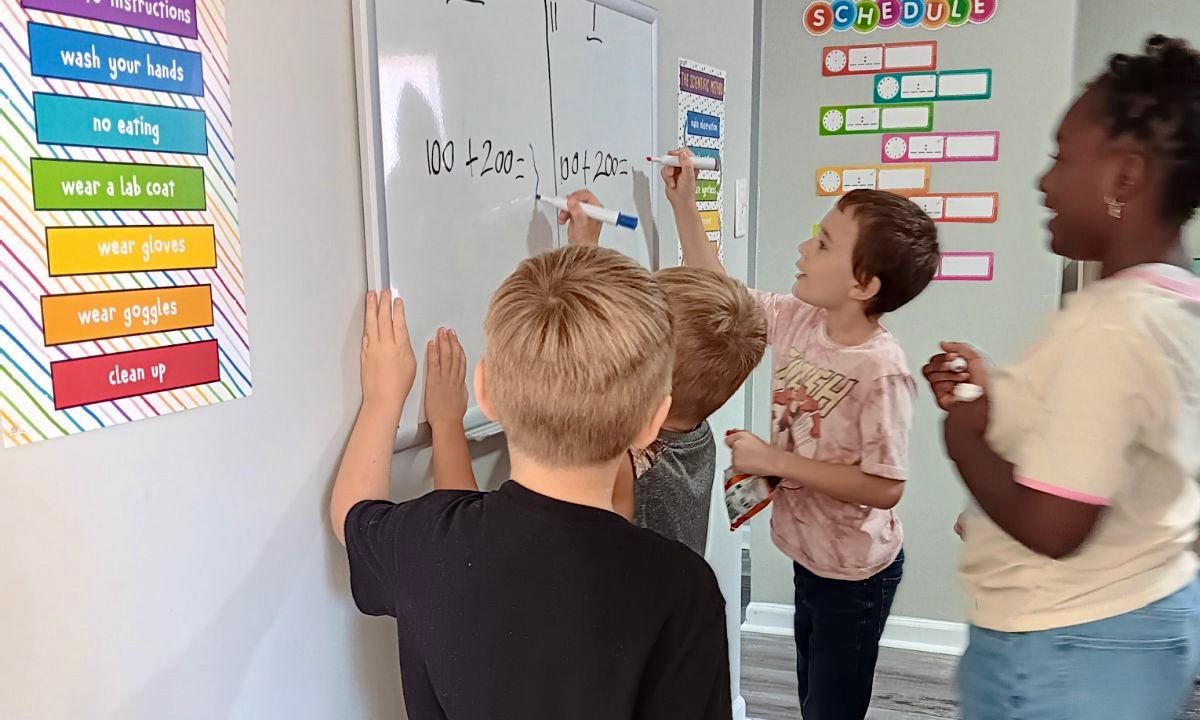Closure of West Virginia Microschool Is a Lesson in Accountability
Frendewey: When Hive Learning Academy didn't keep its promises, parents moved their kids to other schools. District families don't have that option.

Get stories like this delivered straight to your inbox. Sign up for The 74 Newsletter
When The Hive Learning Academy, a small private school in West Virginia, opened last summer, parents thought they had found the right place for their children. It promised STEM lessons, art and the tools needed “to take on the world.” But a few months later, when the school proved unable to provide satisfactory services to students and families, parents took action — and held The Hive accountable more efficiently and effectively than any government accountability office could.
Because the school did not fulfill its promises, parents moved their children to other schools. And because West Virginia has an education savings account program that lets families use state funds for tuition and other education expenses, many asked for — and got — their money back. The school is now closed, and the state has launched an investigation.
This is real accountability with real consequences, and it is quite different from the classic notions of school accountability from the last 40 years.
Since the No Child Left Behind Act of 2001, accountability has meant standardized testing with little or no regard for the individual students’ needs. But testing is not accountability. As an example, look at Baltimore City Public Schools, where 40% of high schools did not produce a single student proficient in math last year. Did Baltimore officials close the schools that yielded such terrible results and give parents their per-pupil funding so they could send their children to other schools? No. Instead, kids are stuck attending the same schools, and the district intends to spend $1.5 million on math tutoring — less than 1% of its $1.7 billion budget.
The lack of accountability doesn’t end there. Over three years, the Maryland Office of the Inspector General for Education found, the district paid taxi vendors more than $632,000 for rides that were never provided. Additionally, the inspector general discovered a case of a Baltimore city schools employee engaging in double-dipping — working full time for both the school system and for the city, resulting in an extra $104,354 in pay. In both cases, taxpayers were burdened with covering the resulting losses. And these types of abuses are not unique to Baltimore schools.
But what options do parents have to send a signal to Baltimore City Public Schools? Can they choose another option? Maryland law is not clear, according to Education Commission of the States, because there is no guarantee that students may enroll in public schools other than the one they are assigned to based on where they live, and Maryland’s only school choice program is extremely limited.
Contrast that with what happened in West Virginia. When The Hive failed to meet expectations and parents became rightly frustrated, they were not left stranded, like those in Baltimore or many other places where education funding isn’t flexible. Instead, parents were refunded the tuition fees paid through the state’s Hope Scholarship program and were able to access other providers.
What happened in the case of The Hive Learning Academy demonstrates principles of transparency, responsiveness and consequence that should be universal.
Imagine if every education provider — public, private or alternative — were held to the same standard of accountability. Students would benefit from a system where their needs were prioritized, where failure to deliver would result in swift action and where parents would have the freedom to choose the best possible education for their children.
Accountability is what should happen to a school when it refuses to deliver for its students. The Hive Learning Academy closed. And all those Baltimore schools are still open. Which were more accountable? Disclosure: yes. every kid. is a grantee of the Stand Together network. Stand Together Trust provides financial support to The 74.
Get stories like these delivered straight to your inbox. Sign up for The 74 Newsletter

;)
